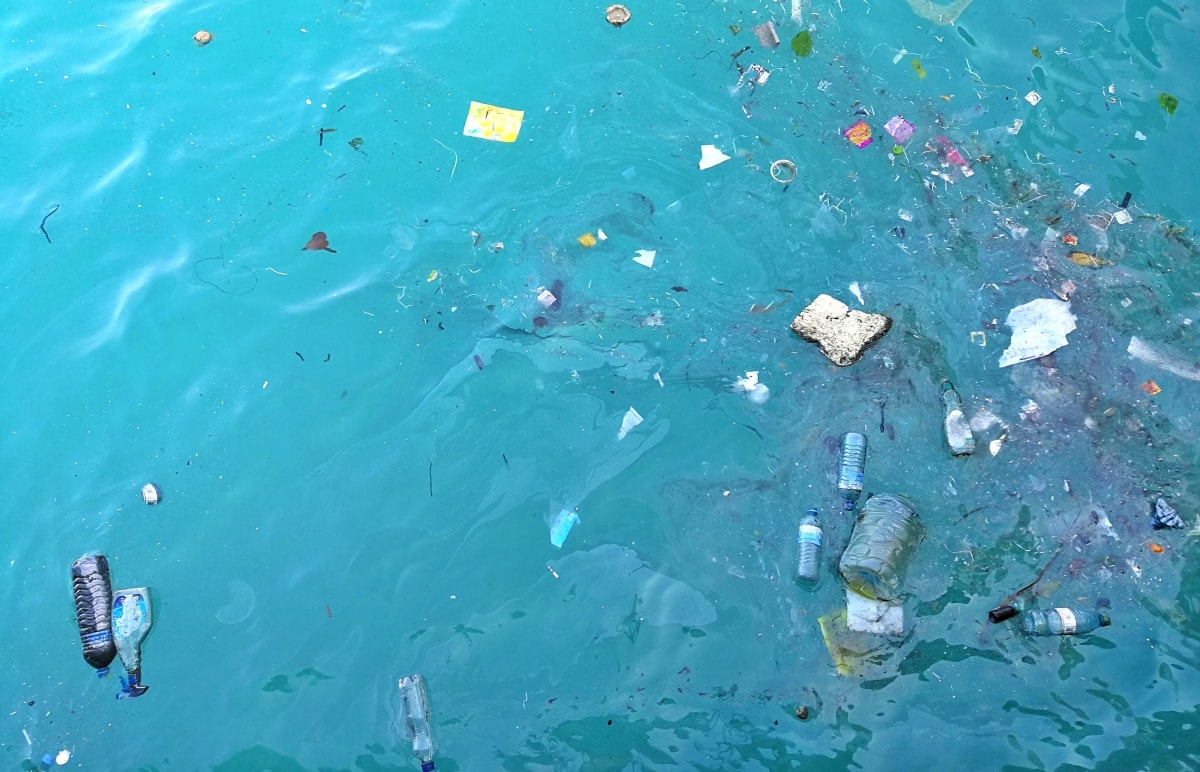Every year, around 8 million tonnes of plastic ends up in the ocean. Over 90% of the plastic waste originates from just ten rivers – eight of which are located in Asia. India is not only one of the regions with the most air pollution, but also home to one of the world’s most polluted rivers – the Ganges. The Mekong River, which flows through six countries, from China to Vietnam, has also become one of the top ten dumpers of plastic waste into the ocean.
As the world is becoming more aware of the plastic pollution issue, especially as it affects the oceans, the statistics of plastic pollution in Asia are not pretty. It is estimated that the continent steadily contributes over 80% of plastic pollution to the world’s oceans. And the prognosis of the situation is even less charming. Researchers from the United Nations Environment Programme (UNEP) predict that if current trends continue, in three decades there will be more plastic than fish in the ocean.
Plastic in the oceans: the ugly truth
A study in 2017 led by the University of California in Santa Barbara found that since the early 1950s, there have been more than 8.3 billion tonnes of plastic produced worldwide. By 2050, this is projected to reach 34 billion tonnes. Plastic production has outpaced any other material in the last seven decades. Plastic packaging, which is mostly designed for single use, accounts for about half of the plastic waste in the world.
According to estimates by UNEP, nearly 79% of the plastic waste ever produced now sits in landfills, dumps or in the environment. About 12% of the plastic waste has been incinerated, and only 9% has been recycled.
However, an Ocean Conservancy report from 2017 found that China and four ASEAN countries – Indonesia, the Philippines, Thailand and Vietnam – dump more plastic into the oceans than the rest of the world combined. Unlike western countries, Asian countries have yet to crack how to manage their plastic waste. According to UNEP, 16 of the top 20 countries contributing to marine plastic litter are middle-income countries, whose economic growth is outpacing waste management infrastructure development.
High cost of plastic pollution in the oceans
The UNEP report “Single-use plastics: A Roadmap for Sustainability” estimates the damage to the global marine ecosystem at $13 billion annually.
The cost of removing all single-use plastics accumulating in the environment is estimated to be higher than the cost of preventing it. But even the prevention expense is not a small number. In Europe alone, the estimated cost to clean shores and beaches of pollution reaches over $700 million annually.
Furthermore, humans are not the only ones paying the price for plastic pollution. Experts say that by 2050, almost all seabird species will have ingested plastic particles through food.
Marine life is already highly affected by the situation. Last November, a sperm whale was found dead on an Indonesian island. There were nearly six kilogrammes of plastic waste inside the whale’s stomach, including 115 plastic cups and 25 plastic bags. Im March, a dead whale with 40 kilogramms of plastic trash in its stomach was found in the Philippines.










 Australia
Australia China
China India
India Indonesia
Indonesia Japan
Japan Malaysia
Malaysia Philippines
Philippines Singapore
Singapore South Korea
South Korea Taiwan
Taiwan Thailand
Thailand Vietnam
Vietnam Germany
Germany Hong Kong
Hong Kong USA
USA Switzerland
Switzerland Singapore
Singapore
 United Kingdom
United Kingdom







